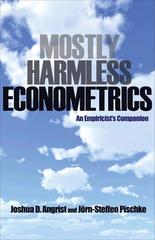Question
A British cabinet minister has now stepped into the debate regarding equal prize money at Wimbledon, the British Open tennis championships. Patricia Hewitt (no relation
A British cabinet minister has now stepped into the debate regarding equal prize money at Wimbledon, the British Open tennis championships. Patricia Hewitt (no relation to the men's winner), the Trade and Industry Secretary, announced that it is 'simply wrong' that the winner of the men's singles should collect 525,000, while the women's winner should receive only 486,000, when they had both worked equally hard. The debate regarding prize money is not new, and has aroused some strong feelings in the last ten years. The 1996 men's champion, Richard Krajicek, commented in 1992 that most women players were 'fat, lazy pigs' who deserved to win less. This attracted a storm of protest from many supporters of women's tennis, and these supporters and lobbyists have been successful in gradually reducing the differentials in prize money. Tim Henman, the British number one player, Course Title : Introduction to Economics Course Code : ECO-301 Discipline /Program : BSIT Total Marks : 30 Time Allowed : 48 Hours Instructor's Name: Mr. Abdul Majid Khan attracted criticism in 1999 for accusing female players of being 'greedy' in demanding more prize money in 'Grand Slam' tournaments. The situation in 2002 was that in the four 'Grand Slam' tournaments the prize money was equal for men and women at both the US and Australian Opens, but interestingly the women's prize money was only half that of the men's at the French Open. Let us consider some of the main arguments that have been put forward both for and against equal prize money: FOR 1. Women have to train just as long and hard as men. 2. The ball is in play longer in women's matches, because the game involves more rallies and less 'serve and volley' tactics, according to research by the Women's Tennis Association. 3. Female stars are just as popular with the crowds as male players. 4. Unequal pay is an example of unfair discrimination, which in many countries is illegal. AGAINST 1. Men have to play the best of five sets, while women only play the best of three. Therefore men play longer. Research from Stirling University shows that, on this basis, men earn less. The 1998 men's singles champion, Pete Sampras, earned 26,270 per hour, compared with 42,011 per hour received by the women's champion, Jana Novotna 2. Competition at the top of women's tennis is less stiff, allowing female stars to compete in the doubles more easily, and win two prizes. The combination of singles and doubles prizes for women would exceed the singles prize for men. 3. Male players attract bigger crowds. 4. Women are not as good as men. The last point has also raised argument, since it is difficult to make any objective evaluation. On a purely objective measure, the top female stars serve nearly as fast as the top male players, but obviously there are many other factors which make a top tennis player apart from a fast serve. In a recent television interview John McEnroe, never one to shy away from controversy, opined that the top female seed at Wimbledon in 2002, Venus Williams, would only rank about number 400 in the world among male players. Adding another dimension to the debate is sponsorship income. Anna Kournikova has never won a major tournament; she is currently ranked number 55 in the world. Her career total prize winnings amounted to just under 3 million at the end of 2001. However, it is estimated that she has accumulated around 50 million in sponsorship income, mainly from Adidas, the sportswear supplier. Although sponsorship income tends to be directly related to the talent of the player, as reflected in computer rankings, there are obviously other factors that are relevant. However, one factor that is important here is that sponsorship income is determined much more by the market forces of demand and supply than is the amount of prize money in a tournament. The amount of tournament prize money at Wimbledon is determined by the management committee of the All England Club. What do the public make of all this? In a recent television poll by the BBC the viewer's calling in were nearly equally divided: 51 per cent thought the men should receive more, 49 per cent thought prize money should be equal.
Questions 1 : Do the observations by Patricia Hewitt make any sense in economic terms?
Q2 : How relevant is hard training to determining prize money?
Q 3 :How relevant is length of playing time to determining prize money?
Q4: Why is sponsorship relevant to the prize money debate? Is it a good idea to relate prize money to sponsorship?
Q5: Can you suggest any way of using economic forces to determine prize money? What about having an 'open' championship where men play women, with no distinction between men's singles and women's singles?
Step by Step Solution
There are 3 Steps involved in it
Step: 1

Get Instant Access to Expert-Tailored Solutions
See step-by-step solutions with expert insights and AI powered tools for academic success
Step: 2

Step: 3

Ace Your Homework with AI
Get the answers you need in no time with our AI-driven, step-by-step assistance
Get Started


